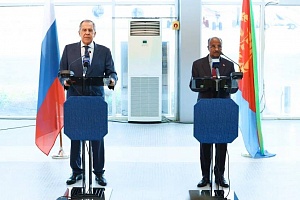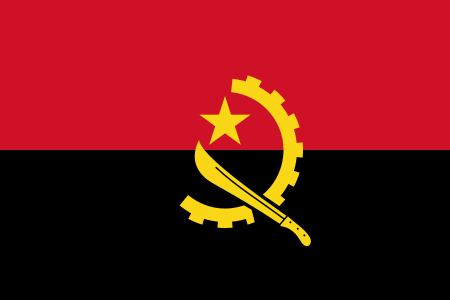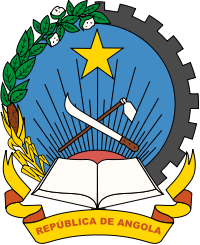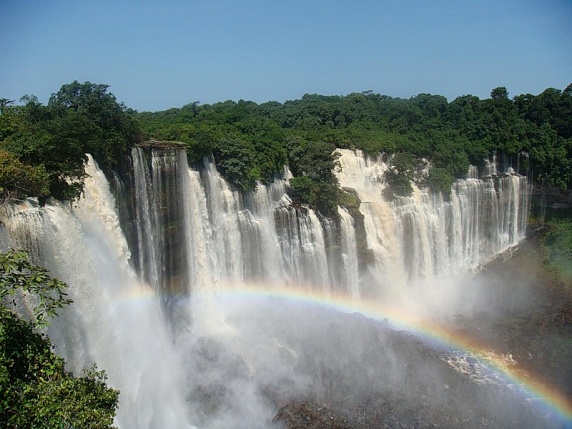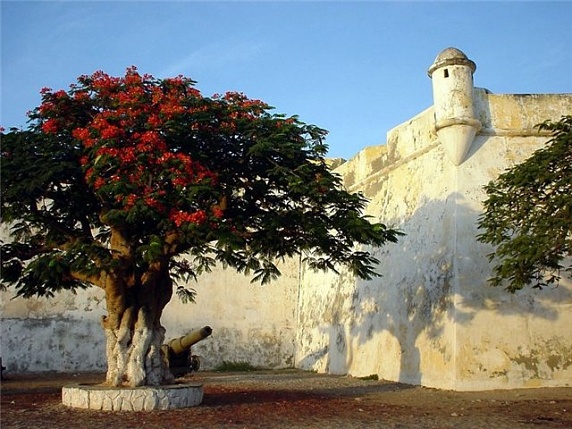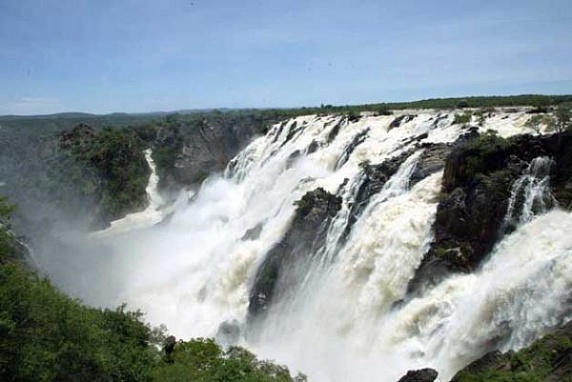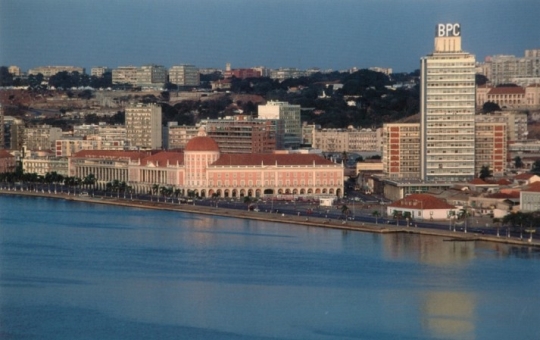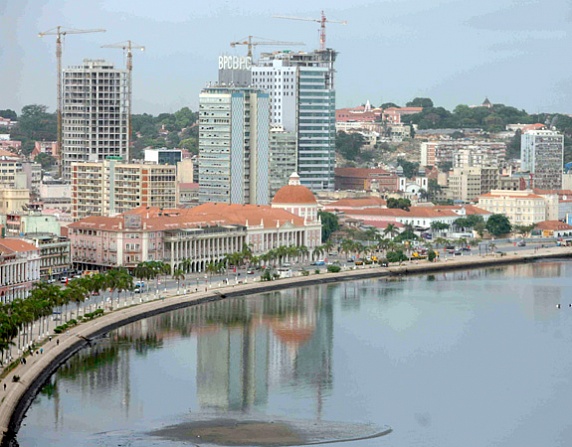 Республика Ангола
Республика Ангола
Foreign Minister Sergey Lavrov’s remarks and answers to media questions at a joint news conference with Foreign Minister of the State of Eritrea Osman Saleh, Massawa, January 26, 2023
Ladies and gentlemen,
First of all, I would like to thank our Eritrean friends for the warm reception and hospitality, although our stay was quite short. We held productive and detailed talks with President of Eritrea Isaias Afwerki and Foreign Minister Osman Saleh.
Our relations have a long history and are aimed at facilitating equitable and mutually beneficial ties in all spheres. In May 2023, we will mark the 30th anniversary of establishing bilateral diplomatic relations.
Today, we conducted an inventory of projects, implemented as part of our bilateral relations and requiring additional attention. We are interested in expanding trade and economic cooperation. For this purpose, we agreed to set up an intergovernmental mechanism of consultations between the relevant agencies. During these consultations, we will review economic, trade and investment issues, as well as specific steps that should be taken to shield our cooperation from illegitimate Western sanctions.
We will also encourage direct contacts between our business communities. Businesses are interested in implementing joint projects, including those in mining, the power industry, agriculture, and information and communication technologies. We will have to conduct an in-depth assessment of the logistics potential of the Massawa seaport and airport. The latter is quite interesting in terms of its transit potential. We reaffirmed plans being implemented in the field of military and military-technical cooperation.
We agreed to strengthen our contractual framework and to accelerate the signing of several documents the sides are analysing, including a memorandum on cultural cooperation and an agreement on mutual recognition of education qualifications. The latter document meets the interests of the Eritrean citizens studying in Russia. We will allocate 22 scholarships for future students, and we plan to increase this number. We are also aware of the mutually beneficial cooperation prospects between the sister cities Asmara and Yekaterinburg and Massawa and Sevastopol.
We are closely cooperating on regional and international issues. Russia and Eritrea are committed to the basic principles of the UN Charter, first of all the sovereign equality of states and non-interference in internal affairs. We are against any attempts to force alien development principles on states and refusal to respect their traditions and customs. With this aim in view, the Group of Friends in Defence of the UN Charter has been established and is actively working in New York. It includes about 20 states, including Russia and Eritrea.
We are grateful to our Eritrean friends for their consistent support of Russia’s initiatives at the UN. Eritrea has co-authored many of them. We have taken note of Asmara’s principled and balanced stand on the developments in Ukraine and around it. We agree that Ukraine is being used as a Western instrument mobilised under US guidance to ensure its domination in all regions.
We discussed the situation on the African continent, first of all in the Horn of Africa. We welcome the efforts by the governments of Ethiopia and Somalia to normalise the domestic situation in their countries. We are ready to help these processes. Now that Africa, just like other parts of the developing world, is actively working on measures to strengthen its identity, we see additional opportunities for cooperation between Russia and the African Union. Of special significance in this regard is the second Russia-Africa Summit, which is scheduled to take place in St Petersburg in July, which the President of Eritrea has been invited to attend, of course.
We visited the square in Asmara where a monument to Alexander Pushkin stands. We took part in a touching ceremony that was attended by local residents, including schoolchildren. We are grateful to the Eritrean people for cherishing the memory of that great poet who unites our nations.
I have invited Osman Saleh to visit Russia again. I hope he will make use of that invitation soon.
Question: Have any preliminary agreements been reached during your African tour which can be put on paper during the Russia-Africa Summit in St Petersburg this July?
Sergey Lavrov: We are bringing together the opinions and proposals made by African countries for forming a detailed agenda of the summit. It will comprise four large sections: food and energy security, technology transfer and healthcare. These are the obvious priorities for the world as a whole but especially so for Africa. Everyone is talking about food and energy security, as well as healthcare. Technology transfer is especially important in Africa for overcoming its dependence from external factors.
In all the countries we have toured – South Africa, Eswatini, Angola and Eritrea, we heard similar views on the economic situation, above all, in light of the growing desire of African and AU countries to overcome the negative consequences of their colonial past, which are still taking their toll. The agreements we are preparing for the summit will be presented in a political declaration and an action plan for 2024-2026.
Question: I would like to ask about the trade agreement that you mentioned between the Massawa port and the Sevastopol port. What is the implementation of this agreement right now?
Sergey Lavrov: You must have misunderstood me. I was talking about Sevastopol and Massawa establishing sister-city relations, primarily of cultural value. The development prospects of the Massawa seaport and airport is a separate issue. Our partners are interested in working on this and we are ready to help.
Question: What kind of steps can Russia take to help with the post-conflict situation in the Tigray Region? Why hasn’t the European Union basically done anything to establish peace in the last few years?
Sergey Lavrov: We welcomed the agreement between the government of Ethiopia and the Tigray People's Liberation Front. The agreement was achieved through the mediation of President of Angola Joao Lourenco and the former presidents of Nigeria and Kenya Olusegun Obasanjo and Jomo Kenyatta.
As for the reasons for the European Union’s action or inaction, it is difficult for me to comment. These days, it is generally difficult to understand the policy the EU is pursuing, especially after it recently signed a declaration on full cooperation with NATO. They should decide what kind of future they plot for themselves. We cannot help them, nor will we put up obstacles.
Question: The world is currently moving from unipolarity to multi-polarity. What role do you foresee for Africa?
Sergey Lavrov: The establishment of a multi-polar world is an objective and unstoppable process. The collective West – the United States, NATO and the EU, which are fully controlled by Washington – are trying to reverse this process. But these efforts are futile. The closest thing they can count on is a slight slowdown of the objective course of history.
We can see that the North Atlantic Alliance is raising claims not only against its former territory of responsibility but extends them to the entire Asia-Pacific Region. We know that American, British and other European delegations regularly visit Africa and demand, with a stubbornness that should be applied elsewhere, that African countries refrain from cooperation with the Russian delegation and stay within the boundaries of common discipline, which the West essentially sees as restoring colonial dependence in a new form.
No visits to deliver mentor advice nor the hybrid wars of the West (including in Ukraine) can stop the development of new centres of economic power, financial and political influence. Countries like China and India are already ahead of the United States and EU members in many respects. Türkiye, Egypt, countries of the Persian Gulf, Brazil and other Latin American countries are emerging as influential and self-sufficient centres. They are the future centres of multi-polarity.
Africa is one of the most serious centres with colossal potential. It is an extremely affluent continent, including when it comes to natural resources, which have been exploited for many centuries. The West wishes it could continue this exploitative policy in Africa. As far as I understand, the President of Angola proposed convening a summit of the African Union to determine Africa’s place in the emerging world order, primarily in the context of economic development.
We observe similar tendencies in Latin America, where the Community of Latin American and Caribbean States, in view of its resumed work and Brazil’s full-fledged participation, considers developing its own mechanisms of monetary relations (even a common currency). The main goal is to protect themselves from the West-controlled chains and mechanisms that have demonstrated their unreliability.
Strengthening regional identity in the developing regions of the world does not mean that multi-polarity is not happening in a global dimension. BRICS is a manifestation of global multi-polarity. This organisation unites five countries, with more than 12 others showing an interest in joining it. Developing links between BRICS and other countries will be a central topic at the upcoming summit of the five which is to take place in August in Durban, South Africa. The clock of multi-polar history is ticking in the right direction.
Question: Russia and Angola are strengthening cooperation in the space industry. Are there plans to expand it? Will the two countries participate in joint space development or building new space stations?
Sergey Lavrov: I spoke about this in detail in Luanda. After the launch of Angola’s satellite, there are plans to develop relations in the space industry. Our Angolan friends have received proposals from Roscosmos, including proposals on using Russia’s GLONASS system. Discussions on specific details still continue.
Question: At the news conferences in Eswatini and South Africa, you mentioned the topic of anti-Russia propaganda and stressed the importance of conveying truthful information about Russia’s foreign policy. During your African tour, have you encountered difficulties as a result of the misinformation about Moscow’s actions disseminated by the West?
Sergey Lavrov: In South Africa, Eswatini and Angola, there were indeed correspondents from the media outlets openly representing the interests of the Western propaganda machine. The governments of these countries are well aware of that. There have been attempts to present distorted coverage of our visits. They reproduced a picture that US and European media try to show. You can see how Euronews commented on my trip to South Africa a couple of days ago. They reported that I was travelling there despite the alleged negative response in the country.
Our partners in Africa and other countries understand this very well. We spoke about the way events related to the West’s proxy war in Ukraine are covered by Russian media and by their media. Despite the well-known criticism one can also hear in Russia against some of our state and non-state channels, their reports about the relations between Russia and the West still contain direct quotes and statements by Western leaders which are highly negative. Then our commentators and political analysts react to them. I took some time to watch Western channels during this trip. They do not attempt to present Russia’s reasoning even partly. They only promote their own slogans for their audiences. What happened to RT and other Russian channels – I am talking about shutting down their bureaus under various excuses – reveals how the West is handling its information – I wish I could say “work” – war.
In 1990, at France’s initiative, the OSCE adopted a declaration on every person’s right to access information from any sources inside their country and beyond. In recent years (even before the start of the special military operation), this declaration and its covenants have been systematically breached by a group of Western countries, led by several of them, including the declaration’s own initiator, France.
We have never set and we do not set restrictions for the media, but in response to hostile, aggressive and sometimes loutish actions of our partners towards Russian journalists, we have to respond in kind. It is our Western partners who started destroying freedom of and access to information.
